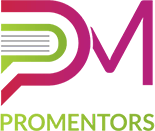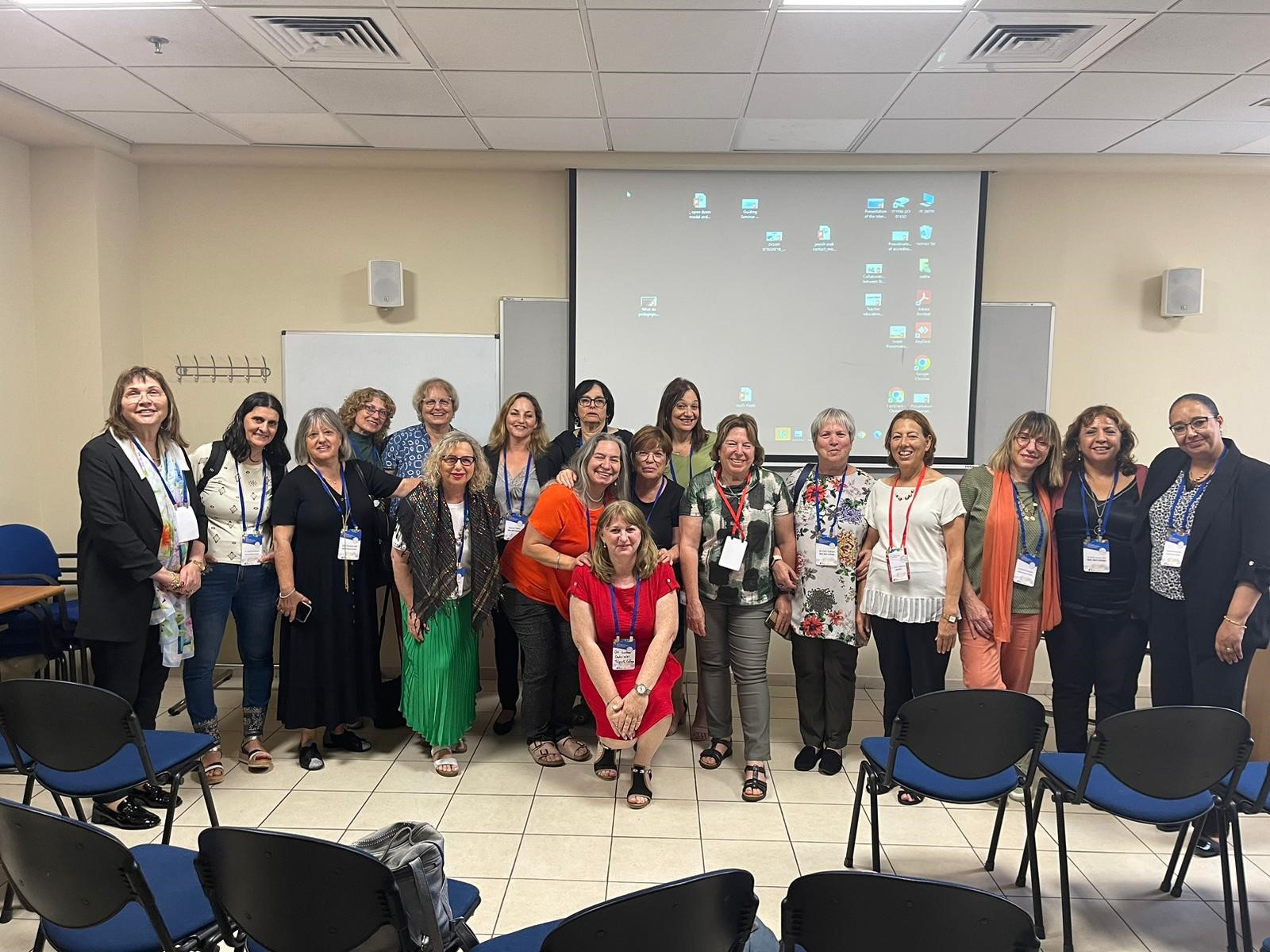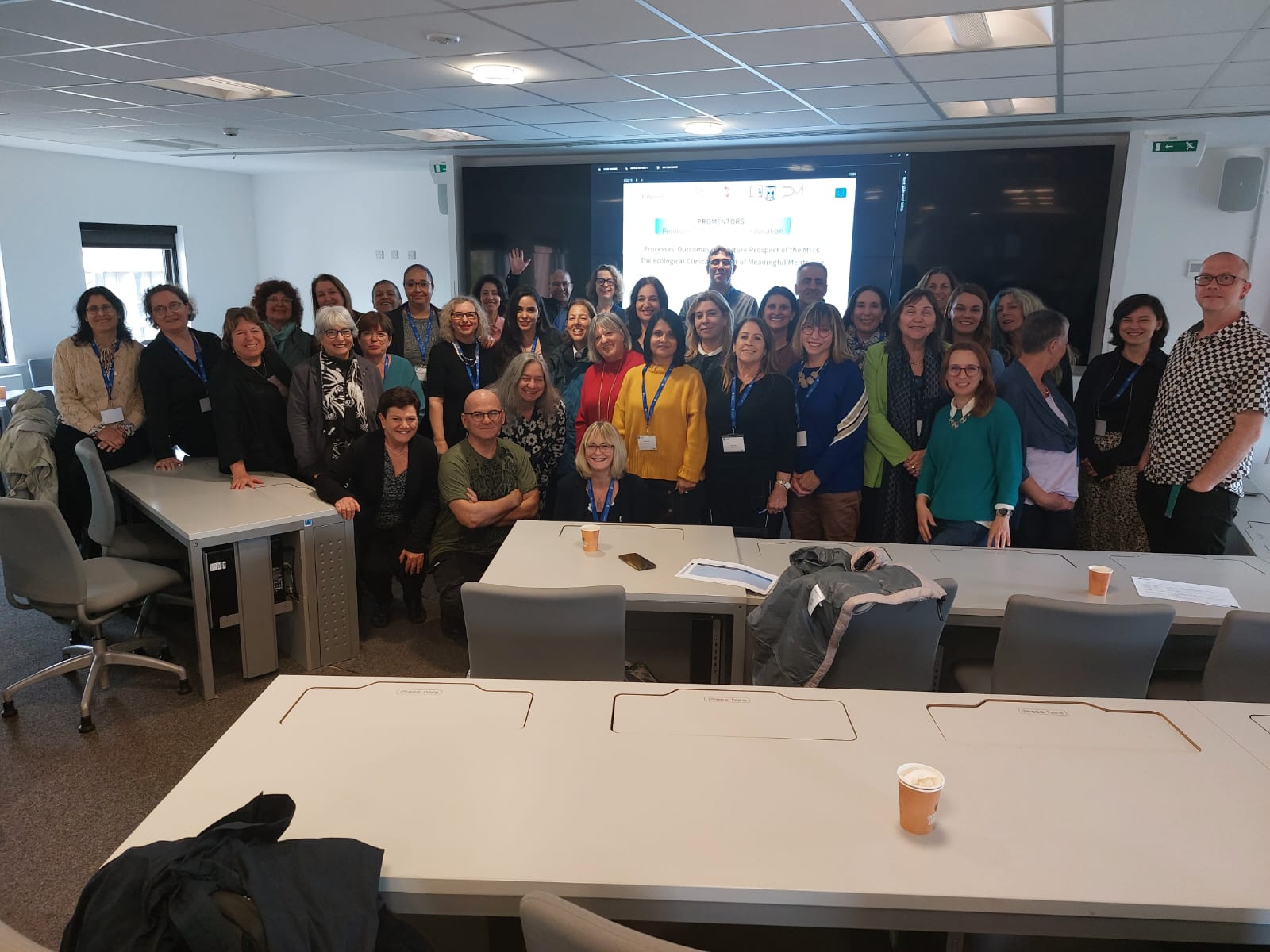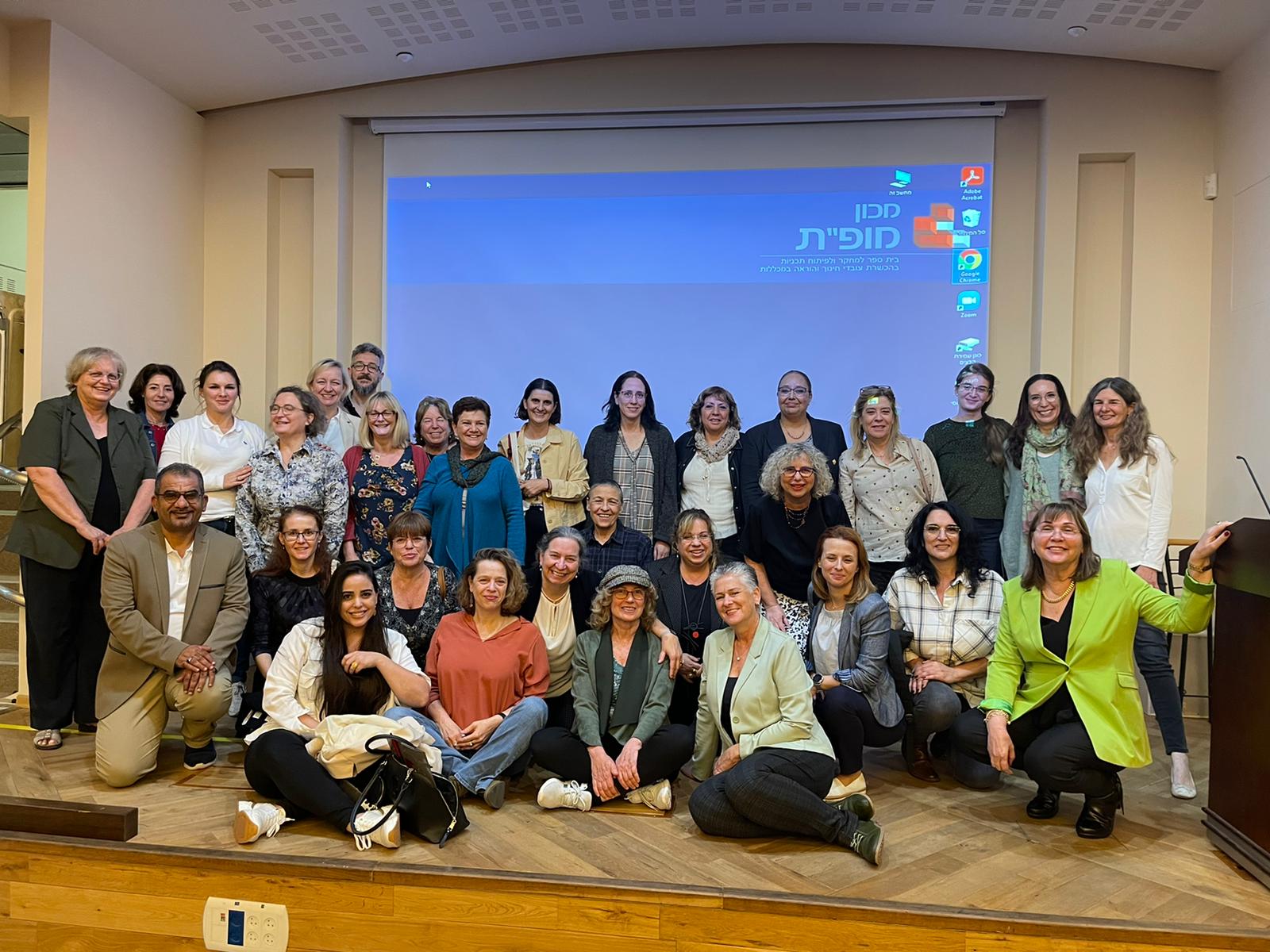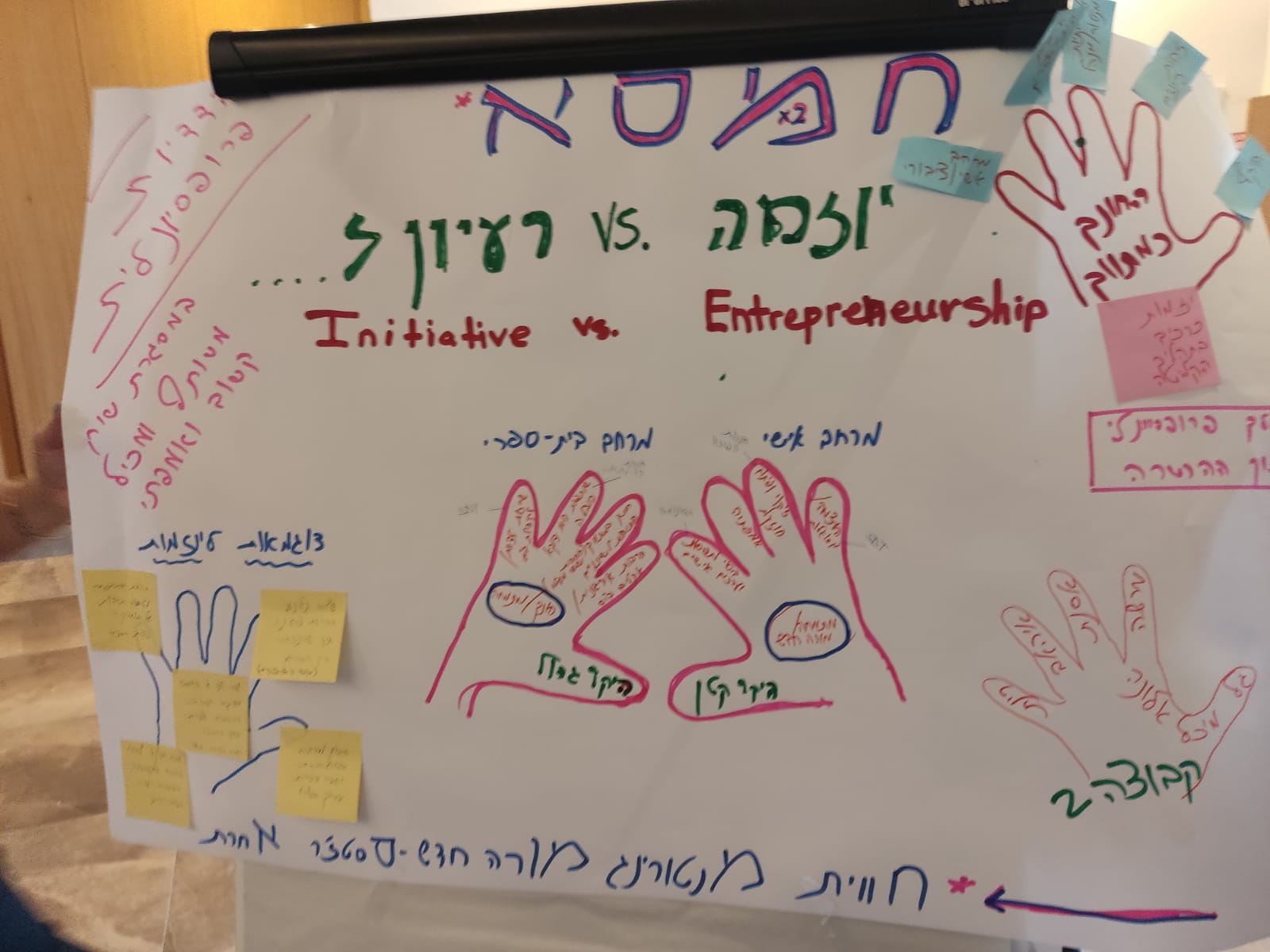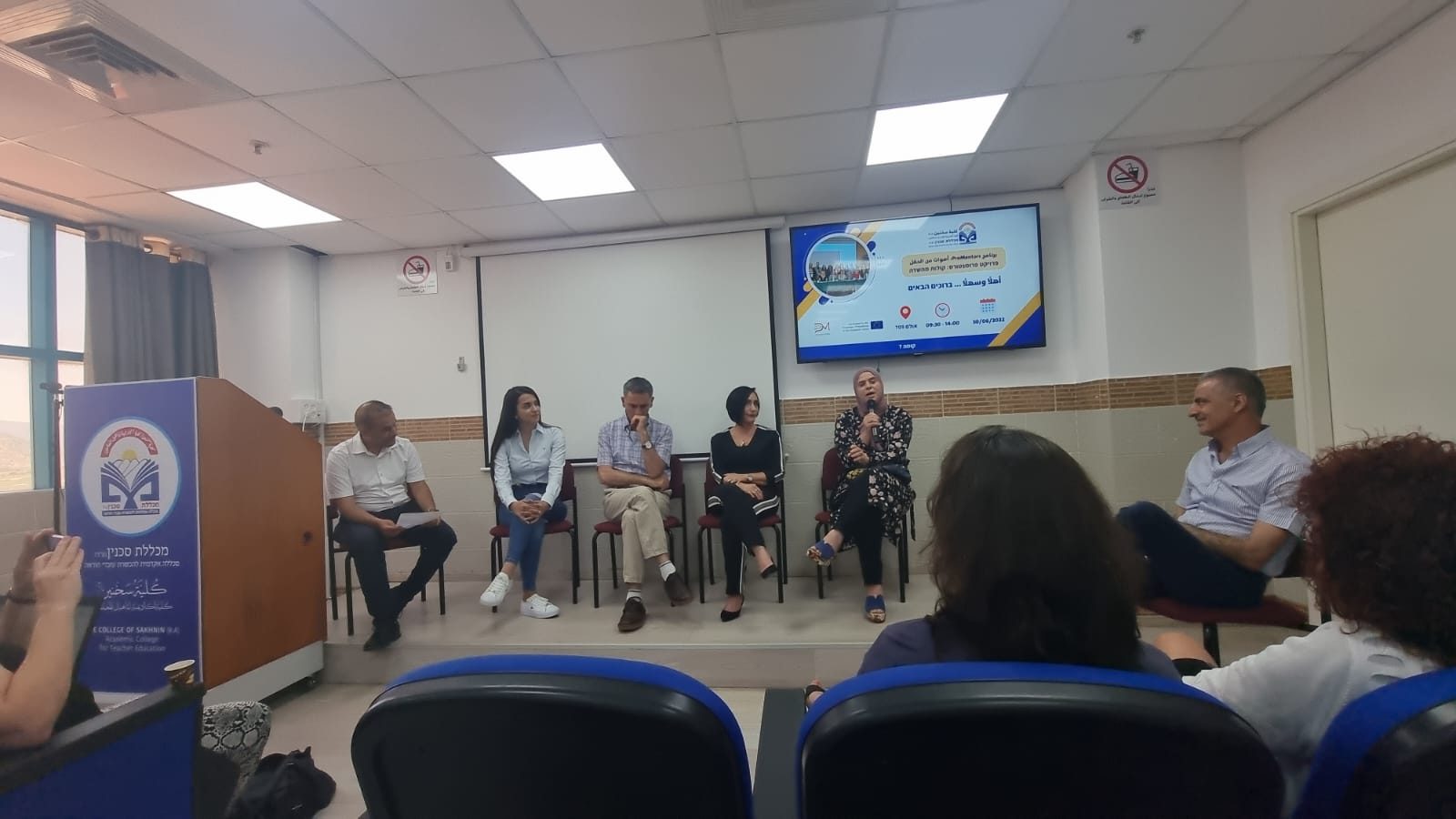On March 11, 2021, Tel Aviv University hosted a relevant and important conference focusing on teaching and teacher training and the necessity and significance of innovation and research in methodology and practical aspects of education. The Promentors partners from Israel presented during the parallel sessions and both the Israeli and the European partners presented and participated in the roundtable session. The project’s team contributed significantly to the conference sharing both research, practical innovations and the project’s process and vision.
One session focused on the incubators as spaces for innovation and growth. Dr. Dalia Emmanuel- Noi, from the Ministry of Education and Beit Berl, began this session by presenting the goals, initiatives and challenges of novice teachers in incubators in the coming decade. Dr. Ilana Dror, from Beit Berl, continued by presenting the issues and development of mentors’ courses as part of the partnership between the field and academia within the Promentors project. Dr. Rivi Carmel, from Seminar Kibbutzim, concluded this session by focusing on the integration of kindergarten teachers within the professional space, thoughts and insights.
The second parallel session focused on new visions for induction in teaching in Israel. Kaye College’s team, led by Dr. Haya Kaplan and Hoida Alaotona- Alhoshal and the faculty from Kaye and Ikra School, presented a practical implementation of the PGM model, as part of a system intervention at Ikra School in Lakia in the Negev. The Talpiot team; Idit Pasternak, Dr. Judy Goldberg and Rabbi Elhanan Shevach together with Irit Sarig from the Ministry of Education; presented the Mentors Home as part of Stagkal, the website which includes both all the practical and professional information novice teachers, mentors and principals need for the process of induction. Dr. Halad Asasyad from Kaye College, Dr. Rinat Arbiv from Seminar Kibbutzim and Dr. Rimona Cohen from Beit Berl focused on the mentors’ viewpoint on professional development. The final presentation of this session given by Dr. Rinat Arbiv from Seminar Kibbutzim, Dr. Avigail Tzabari from Talpiot College and Dr. Oded Macdosi from Mofet Institute presented research on the professional development of mentors and comparisons among the varied mentor courses frameworks.
The final part of the conference included a roundtable discussion and presentations that focused on the five models of mentoring that the Promentors European partners have shared and have been implemented by the Israeli partners as part of the Promentors project. Dr. Haya Kaplan from Kaye College led the roundtable session. Dr. Reuma De- Groot, ,the project director and from Mofet Institute together with Dr. Bilha Bashan , the project coordinator and from Talpiot College, gave an overview of the project. Dr. Mihaela Stingu, Dr. Simona Iftimscu and Dr. Eland Martin from the University of Bucherest in Romania, shared an overview of the models in Israel and Europe. Dr Karen Walshe, Dr. Bryan Smith and Dr. Tom Ralph from the University of Exeter in the U.K., presented the Lesson Study Model. Professor. Hannu Heikkenan and Dr. Matti Pennanen from the University of Jyvaskyla in Finland presented the Peer Group Mentoring (PGM) Model. Dr. Haya Kaplan and Vardit Israel from Kaye College presented the STD Self- Autonomy Mentoring Model and Shlomit Fischer, also from Kaye, presented the Reverse Mentoring Model. The final presentation was given Dr. Habil. Prof KUL E Domagala- Zysk from John Paul II, University of Lublin in Poland who presented the Community -based Model of Mentoring.
The contribution of the Promentors Project partners to this conference was extensive, inspiring and will have implications and will influence the future of education and specifically mentoring in the future.
